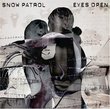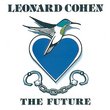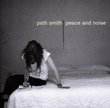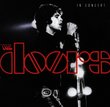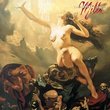| All Artists: Allen Ginsberg Title: Howl Members Wishing: 1 Total Copies: 0 Label: Fantasy Release Date: 3/25/1998 Genres: Special Interest, Pop, Rock Style: Poetry, Spoken Word & Interviews Number of Discs: 1 SwapaCD Credits: 1 UPCs: 025218771320, 029667097123 |
Search - Allen Ginsberg :: Howl
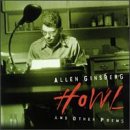 | Allen Ginsberg Howl Genres: Special Interest, Pop, Rock
Has a more notorious, infamous, call to arms of a poem than "Howl" been published in the late 20th century? Scrawled in 1955 with such intimate, enthusiastic fervor by the young Ginsberg, "Howl" helped thrust into the publ... more » |
Larger Image |
CD DetailsSynopsis
Amazon.com Has a more notorious, infamous, call to arms of a poem than "Howl" been published in the late 20th century? Scrawled in 1955 with such intimate, enthusiastic fervor by the young Ginsberg, "Howl" helped thrust into the public eye the Beats--a genuinely original, deep, and at times unintentionally campy group of writers. But "Howl" is Ginsberg's work, and while it pays homage to his close friends--like William S. Burroughs ("who retired to Mexico to cultivate a habit") and Jack Kerouac ("or Rocky Mount to tender Buddha")--it's no documentary of bohemian writerdom. Forget for a second that "Howl" is the famous poem it is--so frequently parodied, copied, and infamously litigated against--and just listen. This disc presents an intense, well-recorded reading from 1959 of this spiritual, touching work. The record also includes "Kaddish," "A Supermarket in California," and six other important works. --Mike McGonigal Similarly Requested CDs
|
CD ReviewsRead it for yourself Jeffrey Ellis | Richardson, Texas United States | 10/17/2001 (5 out of 5 stars) "Unfortunately, there seems to be a lot of self-appointed critics who, in order to try to convince others of their own individuality and intellectual honesty, feel the need to let everyone know that they consider Ginsberg (and every other so-called "Beat" for that matter) to be an overrated hack and more of a celebrity than a poet and blah, blah, blah, blah. It is true that Ginsberg's style has been imitated by far too many lesser poets who, obviously, don't posess anything close to the man's talent and it is also true that there's an equal number of people who claim to love Ginsberg but have never actually bothered to sit down and really read anything beyond the first page of "Howl." Inetivably, one wishes that all of these presumed literary critics (regardless of where they stand) would just shut up, read the poems for themselves, and form their own opinions regardless of what the current trend is. For if they did, they would discover a very talented poet who, even if he occasionally seemed to be repeating and parodying himself as he got older, still created some of the strongest American poetry of the latter 20th Century. While Kaddish remains his strongest work of poetry, his much more famous poem "Howl" still carries more of a raw, exhilirating anger. Written to be read aloud, Howl is basically a cry against the conformity of 1950s America but the anger found within still reverberates almost half a century later. Certainly, his vision of a drug-abusing community of outcasts wandering along darkened city streets remains as relavent as ever. Like any apocalyptic poem, it can be credibly charges that at times, Howl is superficial and there's not much beyond shocking images. I don't necessarily disagree with this -- Howl, for instance, doesn't carry the same emotional weight as Ginsberg's more personal Kaddish. However, if Howl is all image, they're still very powerful images. Would I feel the same passion for this poem if I didn't know the much-reported stories of Ginsberg's "best minds of my generation destroyed by madness?" In short, if the beats hadn't been so celebrated by the media, would this poem have the same power? Honestly, who cares? The fact of the matter is that yes, the beats were celebrated (or hyped depending on your point of view) by the media and Howl is a powerful poem. All other considerations are simply unimportant doublespeak. As for the other poems contained with Howl, they are a mixed batch but all have their value. Some are a little too obviously based on Whitman (much as countless other poets based too much on Ginsberg) but they all have their points of interest. Its obvious that none of them were chosen to overshadow Howl but to a certain extent, that works very well. After the rage and madness of Howl, its good to have these other poems to "come down" with.With all this talk of anger and rage, I should also mention that Ginsberg's sense of joy is a component of his poetry that too many critics either fail to mention or ignore all together. Whatever you may think of his talent, it is obvious that Ginsberg loved poetry and found his greatest happiness through the discovery of new forms of poetic expressions. For all of its apocalyptic ragings, Howl never grows shrill because one can sense the fact that Ginsberg had a lot of fun composing (and performing) the poem. A few years before his own death, I was lucky enough to attend one of Allen Ginsberg's readings. Though he read mostly from Kaddish and his shorter poems (perhaps, understandably, trying to make sure we understood he actually had written other poems beyond the one everyone kept citing), he also read a bit from Howl. He proved to be an amazing reader, going over these words he must have seen over a million times past, with an almost childlike enthusiasm and joy. As he did this, I looked out at the others in the audience and basically, I saw rows and rows of identical looking "intellectuals," all posessing the same dead-serious expression on their face, nodding at each relavent point as if to make sure everyone understood that they understood genius. Contrasting their forced seriousness with Ginsberg's uninhibited joy, I realized that there was only one true tragesy as far as Allen Ginsberg was concerned and that was the fact that his self-appointed acolytes always took him for more seriously then he did himself. To consider Howl and Ginsberg without joy is like considering language without words." Poets see hell through the eyes of angels OAKSHAMAN | Algoma, WI United States | 06/30/2003 (5 out of 5 stars) "I reread this little book before attempting to review it. I remembered that it was a mad mantra of transcendent power from the heart of hell, but I didn't remember how nondated it was. This work is fresher and more relevant than 99% of what passes for poetry today. How can something last nearly 50 years without going stale or becoming trite? How can it be even more real now? Maybe it is because Ginsberg ripped it live, screaming, and bleeding from a place beyond time and beyond space. He tore it from the living bowels of MOLOCH itself and showed it to HIM. After all, what does divine madness know of time?This poem is transcendence itself. It demonstrates that when you plunge into the deepest pit of hell it either kills you, or perhaps it burns out your insides so that you become a soulless zombie, OR you transcend it and rise howling to become a Mad Poet Saint who can truely encompass the Sacred in the Profane.Read this poem, and the others like America, A Supermarket in California, Sunflower Sutra, Wild Orphan, and In Back of the Real. It's almost frightening how relevant to daily life it is. If you didn't know it, you would never guess that it was written in the 50's. Of course Ginsberg does invoke, holy eternity in time holy the clocks in space the fourth dimension, in the Footnote. Maybe that's why it's timeless. As Cassady used to say, we know time, yes, we know time....I wish I would have been there for that first public reading in San Fran with Kerouac running around the audience passing the wine jug. On all the planes, the Gods themselves must have jumped back in shock as a flaming monkeywrench of living poetry was jammed through the spokes of the great quivering meat wheel of conception...." Howl: Drug induced head-trip into the void... LizardKing16 | Quincy IL USA | 12/10/2002 (5 out of 5 stars) "Howl and Other Poems by Allen Ginsberg is quite possibly one of the greatest American epics ever written. With its nightmarish violent and sexual imagery this will last forever. Let me just tell you if your new to Ginsberg (which I am not)I would recommend reading Reality Sandwiches or Kaddish first; if the overtly homosexual imagery in Howl doesn't bother you. Reality Sandwiches is a bit more toned down than Howl although in my opinion not better. Ginsberg's epic is a psychological drug induced (Ginsberg wrote Howl while under marijuana's influence) head trip into the minds of his fellow fallen hipsters and junkies. It is about a howl of defeat and a stench of death. If you are a beginning writer and\or wish to write w\more freedom I highly recommend picking this up not only for enjoyment but also for a style book of sorts because Howl shows how to free onesself in the literary sense (trust me I'm a published poet and have been reading Ginsberg for awhile he is one of my main influences). The first part (the actual poem Howl is divided into 3 not including holy, holy)is one long sentence never utilizing a period until the end. I could write a whole essay on Ginsberg but I'll leave you with the man, the myth, the legend; just pick up his work if poetry interests you and definently pick up Howl if you are not too sensitized."...the mad man bum and angel beat in time; unknown, yet putting down what might be left to say in time come after death...""
|

 Track Listings (10) - Disc #1
Track Listings (10) - Disc #1
